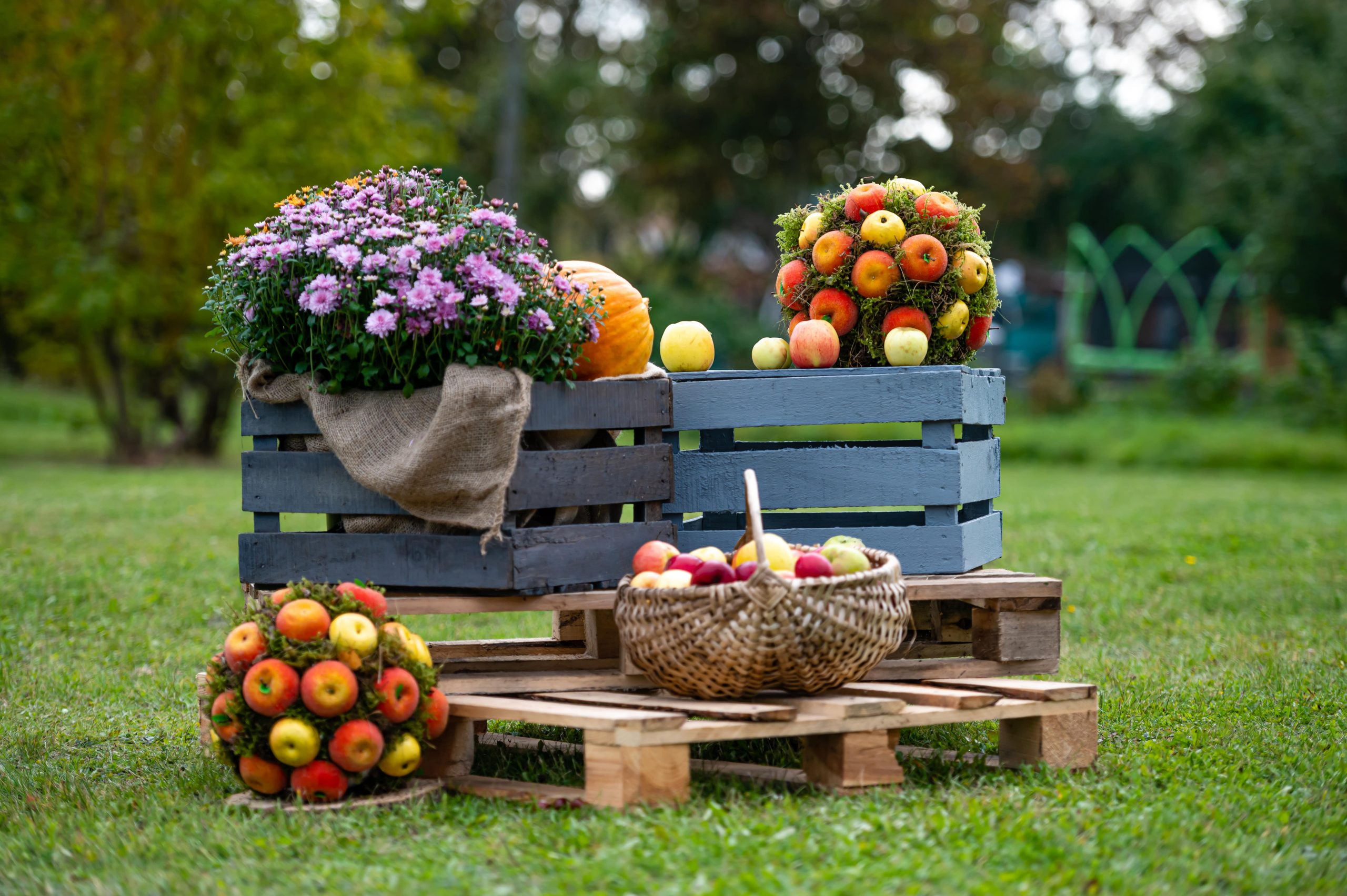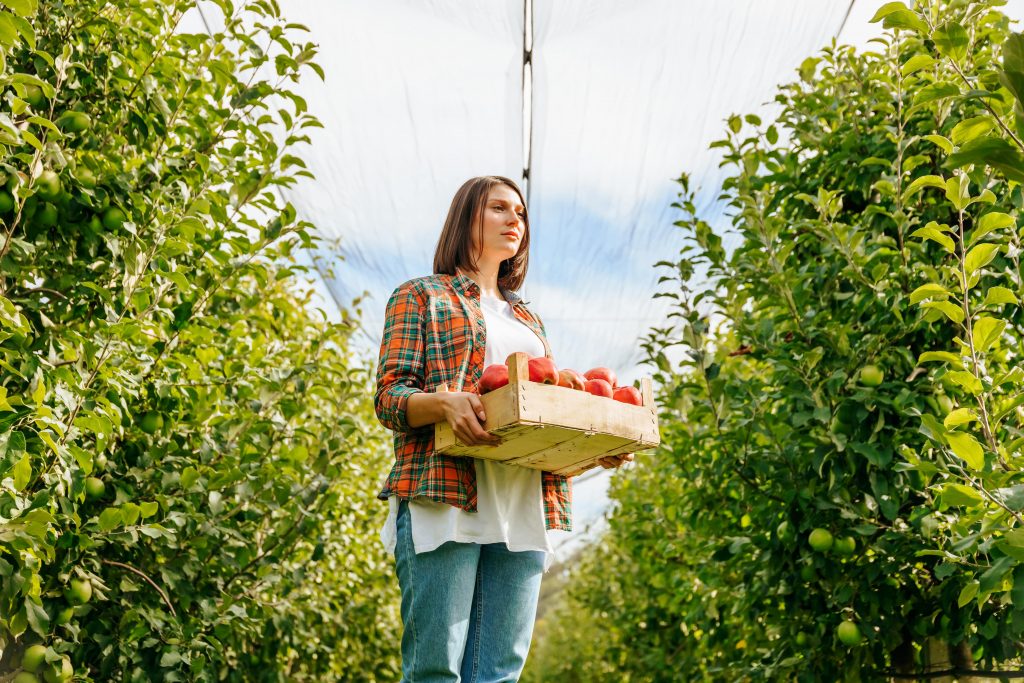
The Benefits Of Growing Your Own Food In A Home Garden
It’s easy to lose touch with nature and all of its perks in today’s busy world. But finding ways to get back in touch can make our health and happiness much better generally. Fruit and vegetable planting is one way to do this. It’s a fun and relaxing hobby that connects us with nature and has many health benefits.
When we grow vegetables, we can get some fresh air and work with our hands together in the ground. Being exposed to the elements of nature can help our immune systems, make our lungs healthier, and make us feel calmer. Being outside in the sun while farming is a safe way to get vitamin D, which is very important for our health.
It is also known that planting vegetables can help lower worry and anxiety. We can get away from the stresses of everyday life and find peace in the simple beauty of nature while we dig in the dirt, plant seeds, and take care of our growing plants. We can slow down, enjoy the beauty around us, and feel at peace with this hands-on, engaging experience.
Access to Fresh Produce
One of the best things about growing your own food in a home yard is having access to fresh food. Fruits and veggies grown at home are always at their freshest and tastiest, unlike store-bought food, which may have been picked early and traveled for days.
Because you grew it yourself, you can pick the fruits and veggies when they are fully ripe and ready to eat. This means you can eat them when they are at their healthiest and tastiest. Store-bought food, on the other hand, is often picked before it’s fully grown so that it can survive being shipped, which means that the taste and nutrients are lost.
Also, fruits and veggies grown at home are in season and can be eaten within a few days of being picked. This way, you can enjoy the tastes and textures that are unique to each season while also getting the most nutrition. The vitamins, minerals, and antioxidants in fresh produce are higher than those in grocery store produce, which may have been stored and shipped for a long time.
If you can get fresh, homemade food, you can make your meals more nutritious and enjoy the real tastes of fruits and veggies. When you grow your own food in a home garden, you can be sure that you are getting the best quality, as well as the full benefits of peak freshness and yearly variety.

Physical Activity and Health Benefits
In addition to giving you fresh, healthy food, growing your own food in a home garden is a great way to get exercise and improve your health. Gardening can be a fun and satisfying way to get exercise that helps you reach your daily fitness goals.
Working out in the yard by digging, planting, pulling weeds, and watering are all examples of physical activities that can help you lose weight and get stronger. This low-impact workout helps tone muscles, make you more flexible, and make you stronger.
Heart attacks and strokes are also less likely to happen if you plant regularly. Gardening can drop your blood pressure, make your heart healthier, and make you fitter overall. Studies show that gardening at a reasonable level for 30 minutes can burn between 150 and 300 calories. This can help you control your weight and lower your risk of health problems linked to fat.
Being outside, getting fresh air, and soaking up the sun are all good things that can happen when you work in your yard. Gardening makes you feel good and calms you down, which can help your mental health and lower your stress levels.
So, growing your own food in a home garden not only gives you fresh, organic food, but it also gives you a fun and satisfying workout that helps you reach your fitness goals and lowers your risk of heart attacks and strokes.
Environmental Impact of Home Gardens
Not only is gardening at home good for our physical and mental health, it’s also good for the earth. A lot of carbon dioxide is released into the air when big tools and long-distance transportation are used in commercial gardening. But if we grow our own food in a home yard, we can lower our carbon loads and have less of an effect on the earth.
Carbon emissions come mostly from transportation, since store-bought fruits and veggies often have to journey long distances before they get to our meals. On the other hand, growing your own food cuts down on the need for a lot of transporting, which saves fossil fuels and lowers carbon emissions.
We are doing something long-lasting that helps protect the earth when we plant at home. When we grow our own food, we buy less store-bought produce, which lowers the desire for fruits and veggies that are grown in factories. We help make the food system more sustainable by relying less on industrial farms. This lowers carbon emissions.
Financial Savings From Growing Your Own Food
Having a home yard and growing your own food is good for the environment and can save you a lot of money. By not having to go to the store to buy fruits and vegetables, you can save a lot of money on your shopping bills.
Some fruits and vegetables, like tomatoes and bell peppers, are much cheaper to grow than to buy in a store. For example, a single tomato plant can produce a lot of tomatoes all season long. If you compare the cost of growing your own tomatoes to getting them at the store, you can save a lot of money over time.
It’s also important to think about the possible return on investment from growing your own food. Setting up a garden may cost money at first, like when you buy plants and planting tools, but you can save a lot of money in the long run. In addition, you can make your garden more productive and save money by using organic, closed-loop farming techniques like composting and natural bug control.
You have full power over what you grow and how you grow it when you grow your own food. This lets you put organic habits first, so you don’t have to buy expensive organic food at the store. You can eat healthy, local food and save money on groceries by putting in a little time and work. Growing your own food is good for both your health and your pocket because it saves you money.

Conclusion
In conclusion, growing your own food in a yard at home has many advantages. It not only makes it easy to get fresh food, but it also gets people moving more, which is good for their health in many ways. To make the earth healthy and lower your carbon footprint, gardening should become a regular habit. Growing your own food can also save you a lot of money in the long run because you won’t have to buy expensive store-bought fruit. Having a sense of success and happiness as you watch your garden grow are huge benefits. So, whether you have a big backyard or a small porch, think about starting your own veggie garden. You’ll get fresh food, better health, and a more environmentally friendly way of life.


